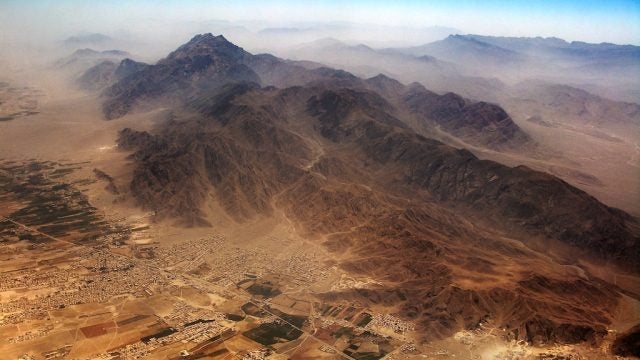
Title: Understanding Africa’s Coups
The nine military coups in Africa since 2020 are not homogeneous. There is a diversity in causes and purposes behind these coups. However, there is a striking similarity among all the putschist leaders after their coups – a desire to hold onto power for as long as possible. A key reason for this uptick in coups has been a lack of consistent regional, continental, and international response where some coups have been de-facto recognized and others not.
Military coups in Niger and Gabon in 2023 sharpened the world’s focus on the fragility of rule of law in Africa. There have been nine successful military coups on the continent since 2020, alongside at least the same number of failed attempts, all centered on a group of Francophone states that commentators have termed a Sahelian ‘coup belt’. The affected states face a slow post-pandemic recovery exacerbated by climate change shocks. Food insecurity, political instability, stagnating economies, high-interest rates, and weak governance further add to their challenges. Apart from Gabon, each is classified as a Least Developed Country (LDC) by the United Nations. The world’s media has been swift to diagnose a ‘coup wave’ on the continent. Although there are many drivers behind these coups, all these putschist leaders after their coups have shown forensic purpose to hold onto power for as long as possible. This has been encouraged by inconsistent and divided policy responses by regional, continental, and international bodies and partners.
An African “coup wave”?
A generalized declaration of an African “coup wave” overlooks the diversity in causes and purposes behind the coups. Some of them have been driven by concerns over lack of security, such as Burkina Faso’s September 2022 coup that saw Paul-Henri Sandaogo Damiba removed over his inability to combat an Islamic insurgency. In Mali, Colonel Assimi Goïta and his National Committee for the Salvation of the People (CNSP) justified their May 2021 military takeover citing continued national security failures in the face of radical jihadi territorial gains.
Other coups have been framed as protecting democracy. In September 2021, the Guinean military overthrew President Alpha Conde in response to his abolition of presidential limits. In Gabon, the August 2023 coup occurred shortly after the announcement of incumbent president Ali Bongo Ondimba’s victory in an election widely perceived as fraudulent. The new junta called it a ‘Freedom Coup,’ ending the fifty-six-year-long rule of the Bongo family. A failed November 2023 coup in Sierra Leone also followed a disputed election.
These ‘anti-autocratic’ coups stand in contrast to Mahamat Déby’s assumption of power in Chad. Following his father’s battlefield death in April 2021, Déby sought to maintain the status quo of elite domination in Chadian politics and entrench dynastic rule. Similarly, Niger and Sudan have seen heads of state replaced by senior regime insiders. Nigerien Presidential Guard Commander General Tchiani claimed that the “continuing degradation of the security situation and poor economic and social governance” justified his July 2023 detention of President Bazoum. However, many observers argue that his real motivation was fear of being replaced.
The Putschist Playbook
Despite the critical differences in the drivers of Africa’s recent coups, there are striking similarities in the behaviors of coup leaders after they assume power. A “putschist playbook” seems to be emerging for aspiring authoritarians. The ultimate objective appears to be quite simple: retain power for as long as possible.
Popular support—or at least the appearance of it—is crucial to this strategy. Some coups attract popular support because they navigate blocked political successions like in Gabon and Guinea, where voters lost faith in the political system and consequently supported a military coup. Putschists were able to claim popular concerns over accountability and length of tenure as justifications. In other places, notably Mali, Niger, and Burkina Faso, they have encouraged anti-colonial and anti-French sentiment among the youth to sustain grassroots approval. External actors such as Russia have also encouraged anti-western sentiments and appear to offer praetorian guard services to protect these juntas from counter-coups.
Whether real or not, putschists further use popular support to negotiate longer transition periods to return to constitutional rule. An outlier to this data, the November 2010 negotiation of a twelve-month-long transition in Niger by the Economic Community of Western African States (ECOWAS) is one of the few examples of a short transition. Post-coup arrangements in the Sahel, now, average three years. Burkina Faso and Mali are supposed to hold elections in 2024, but Mali’s ruling junta issued a decree on April 10 suspending all political activities until further notice citing a need to preserve public order. Guinea’s National Transitional Council (NTC) agreed on a two-year timetable for a return to constitutional rule, ending in January 2025. While Mahamat Déby committed to returning Chad to democracy within eighteen months, he was able to extend this period by two more years in 2022. Gabon’s ruling junta promised a new constitution and electoral code, offering August 2025 as an ‘indicative’ date for new elections, approximately two years after their seizure of power. The blueprint for aspiring autocrats is clear: stage a coup, promise a transition, but extend it as long as possible, and eventually hold elections. It remains to be seen how many of these promised elections take place on time, or whether coup leaders themselves leverage their power to subvert the democratic process.
Inconsistency in Dealing with Putschists
Post-coup behavior of putsch leaders is converging towards the long-term consolidation of power because they are being allowed to do so. Africa had seemingly established an anti-coup norm after the Lomé Declaration of 2000, which mandated immediate suspension from the Organisation of African Unity (now African Union or AU) for illegal seizures of power. There was an average of four coup attempts a year in Africa between 1960 and 2000. After Lomé, the period up to 2017 saw less than half this number.[1] Unfortunately, Africa’s continental resistance to coups has weakened considerably as the AU failed to apply the Lomé Declaration during the unconstitutional transitions in Zimbabwe (2017), Sudan (2019), and Chad (2022). The Declaration has since lost its deterrence credibility.
The effectiveness of regional mechanisms has also decreased. ECOWAS failed to marshal a consensus for military action against the Niger coup. It was further weakened by Niger, Mali, and Burkina Faso’s withdrawal in January 2024, aimed at reducing regional pressure on the juntas to return to constitutional rule and hold elections. This tactic seems to have worked as ECOWAS’ fear of fragmentation and loss of relevance has compelled it to re-open dialogue with the juntas and lift most of its sanctions on Niger.
Inconsistent responses by the wider international community have further decreased the anti-coup pressure. Strategic interests and concerns over counterterrorism have led some international partners such as Morocco, Turkey, and the United Arab Emirates to forge pragmatic relations with new military governments, notably in the Sahel. Concerns that external pressure could push juntas closer to Russia or fuel increasingly radical anti-Western sentiment—as France has experienced in its former colonies—have also limited international responses. An increasingly multipolar global environment makes any unified anti-coup response more uncertain, with actors such as Russia keen on forging relationships with pariah states. While four coup states (Burkina Faso, Guinea, Mali, and Sudan) were not invited to the second United States-Africa Leader’s summit in December 2022, they were welcomed at both the maiden Saudi Arabia-Africa summit and the second Russia-Africa summit in 2023. It is not yet clear whether Africa’s juntas will be represented at the ninth Forum on China–Africa Cooperation in 2024.
Lessons to Move Forward
The inconsistency in regional and international response to Africa’s juntas presents a complex problem. The international community must guarantee a focused transition timetable that avoids rewarding junta leaders. Western policymakers, in particular, must encourage a transition that has a continental or regional presence in order to avoid allegations of neo-colonialism furthering the putschists’ narrative.
The recent period of coups elucidates several lessons that can help shape an effective long-term response. The first is to recognize that despite the populist rhetoric backing them, coups are not popular, or at least do not remain so for long. A 2023 UNDP report highlighted the prevalence of “buyer’s remorse” among those who initially supported coups in Burkina Faso, Chad, Guinea, Mali, and Sudan, as people became increasingly disillusioned with the new leaders. The coup leaders were unable to keep their promises of improved livelihoods under a new social contract. For an already disgruntled population, external actors must avoid using aggressive language or punitive policy that can become scapegoats for putschist failings. The foundations of post-coup regimes are inherently unstable and will offer opportunities for constructive engagement over time.
Secondly, broad-based development is both at the heart of popular aspirations in coup-affected states and essential for mitigating the risk of further coups.[2] Traditional Western donors can offer development assistance that is unmatched by putative partners such as Russia or China. Donors should seek to frame a rejuvenated partnership with coup-affected populations, tailored to the specific economic and social circumstances of each state. They shouldn’t get locked into a race to the bottom with Russia, China, and others over short-term access to illegitimate post-coup regimes. Such actions can alienate cynical populations and set the conditions for recurrent crises.
Finally, Africa’s regional and continental institutions must reboot their responses to unconstitutional transfers of power. The AU and its regional economic communities need to establish a clear and consistent response to coups instead of the ad hoc à la carte responses currently implemented. Allowing political power to concentrate in the hands of military or other security actors, risks setting a state on a path to repeated upheaval, as even bloodless “constitutional” coups cascade into recurrent patterns of military infighting and factionalism. Countries with a history of military involvement in political life are far more likely to experience a recurring pattern of coups. It is this last takeaway that should give policymakers pause. Africa’s faltering anti-coup norms are in dire need of reinforcement.
[1] There were 33 coups or coup attempts in Africa between 2001 and 2017, or just under two a year. Data from Powell and Thyne; Cline Center University of Illinois; VOA research; 1950 – Oct 3, 2023, accessed at https://projects.voanews.com/african-coups/
[2] The importance of development was also underlined by the 2023 UNDP report.
…
Alex Vines is the Africa Director at Chatham House
Image Credit: Wikimedia Commons
Recommended Articles

Hezbollah is widely known as the world’s most powerful sub-state actor. However, it suffered a serious military defeat at the hands of Israel in the latest conflict. This article explores…

Despite ten years of concerted efforts, Western-led counterterrorism strategies have failed to restrain jihadist groups in West Africa. Instead, they have inadvertently worsened the situation. As jihadists target other Western…

Balochistan, Pakistan’s largest and westernmost province, spans 44 percent of its landmass yet remains its most sparsely populated and politically marginalized region, home to just 14.8 million of…